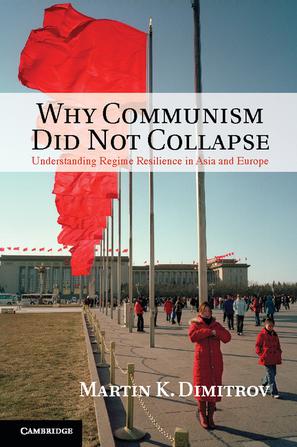-

Patrons, Clients and Policies
Most models of party competition assume that citizens vote for a platform rather than narrowly targeted material benefits. However, there are many countries where politicians win elections by giving money, jobs, and services in direct exchange for votes. This is not just true in the developing world, but also in economically developed countries - such as Japan and Austria - that clearly meet the definition of stable, modern democracies. This book offers explanations for why politicians engage in clientelistic behaviours and why voters respond. Using newly collected data on national and sub-national patterns of patronage and electoral competition, the contributors demonstrate why explanations based on economic modernization or electoral institutions cannot account for international variation in patron-client and programmatic competition. Instead, they show how the interaction of economic development, party competition, governance of the economy, and ethnic heterogeneity may work together to determine the choices of patrons, clients and policies. -

Nested Games
Clearly written and easily understood by the nonspecialist, "Nested Games" provides a systematic, empirically accurate, and theoretically coherent account of apparently irrational political actions. -

Why Communism Did Not Collapse
This volume brings together a distinguished group of scholars working to address the puzzling durability of communist autocracies in Eastern Europe and Asia, which are the longest-lasting type of nondemocratic regime to emerge after World War I. The volume conceptualizes the communist universe as consisting of the ten regimes in Eastern Europe and Mongolia that eventually collapsed in 1989–91, and the five regimes that survived the fall of the Berlin Wall: China, Vietnam, Laos, North Korea, and Cuba. Taken together, the essays offer a theoretical argument that emphasizes the importance of institutional adaptations as a foundation of communist resilience. In particular, the contributors focus on four adaptations: of the economy, of ideology, of the mechanisms for inclusion of potential rivals, and of the institutions of vertical and horizontal accountability. The volume argues that when regimes are no longer able to implement adaptive change, contingent leadership choices and contagion dynamics make collapse more likely. By conducting systematic paired comparisons of the European and Asian cases and by developing arguments that encompass both collapse and resilience, the volume offers a new methodological approach for studying communist autocracies. Offers a new theoretical explanation of the resilience of communist autocracies that emphasizes the structural conditions under which these regimes are able to implement adaptive change Offers a new methodological approach for studying communist autocracies by conducting paired comparisons between the ten regimes that eventually collapsed in 1989�91 and the five regimes that survived past 1989: China, Vietnam, Laos, North Korea, and Cuba Makes a major empirical contribution to our knowledge of how communist autocracies function by: 1) adopting a global perspective onto the phenomenon of global communism; 2) analyzing unfamiliar adaptations, such as the development of institutions of accountability; and 3) using new evidence to challenge existing interpretations of communist durability (especially for countries like China, Vietnam, and North Korea) and of the eventual collapse of communist regimes in Eastern Europe and in Mongolia -

经济高速增长期的日本政治学
在20世纪后半期日本约20年的经济高速增长期中,随着经济的显著增长,日本政治也发生了翻天覆地的变化,如消费拉动型社会的到来、劳动运动的体制化、压力集团运动的活性化与执政党的利益分散所带来的政治稳定等等。本书所讨论的正是当时政治学者的理解认识以及他们尝试分析各种变化后得出的研究成果,可以说经济高速增长期的日本政治学为后世留下了丰富的遗产。 -

Transitions and Non-Transitions from Communism
Since the fall of the Berlin Wall, many scholars have sought to explain the collapse of communism. Yet, more than two decades on, communist regimes continue to rule in a diverse set of countries including China, Cuba, North Korea, and Vietnam. In a unique study of fourteen countries, Steven Saxonberg explores the reasons for the survival of some communist regimes while others fell. He also shows why the process of collapse differed among communist-led regimes in Europe, Africa, and Latin America. Based on the analysis of the different processes of collapse that has already taken place, and taking into account the special characteristics of the remaining communist regimes, 'Transitions and Non-Transitions from Communism' discusses the future prospects for the survival of the regimes in China, Cuba, North Korea, and Vietnam. 1 Examines why some communist regimes have survived whilst others have fallen 2 Compares cases of transition from communism with cases of non-transition across fourteen countries 3 Incorporates theories of social movements and explains the development of opposition across countries and regions -

Comparative Politics
Comparative Politics: Rationality, Culture, and Structure is a completely revised second edition of the volume that guided students and scholars through the intellectual demands of comparative politics. Retaining a focus on the field's research schools, it now pays parallel attention to the pragmatics of causal research. Mark Lichbach begins with a review of discovery, explanation and evidence and Alan Zuckerman argues for explanations with social mechanisms. Ira Katznelson, writing on structuralist analyses, Margaret Levi on rational choice theory, and Marc Ross on culturalist analyses, assess developments in the field's research schools. Subsequent chapters explore the relationship among the paradigms and current research: the state, culturalist themes and political economy, the international context of comparative politics, contentious politics, multi-level analyses, nested voters, endogenous institutions, welfare states, and ethnic politics. The volume offers a rigorous and exciting assessment of the past decade of scholarship in comparative politics.